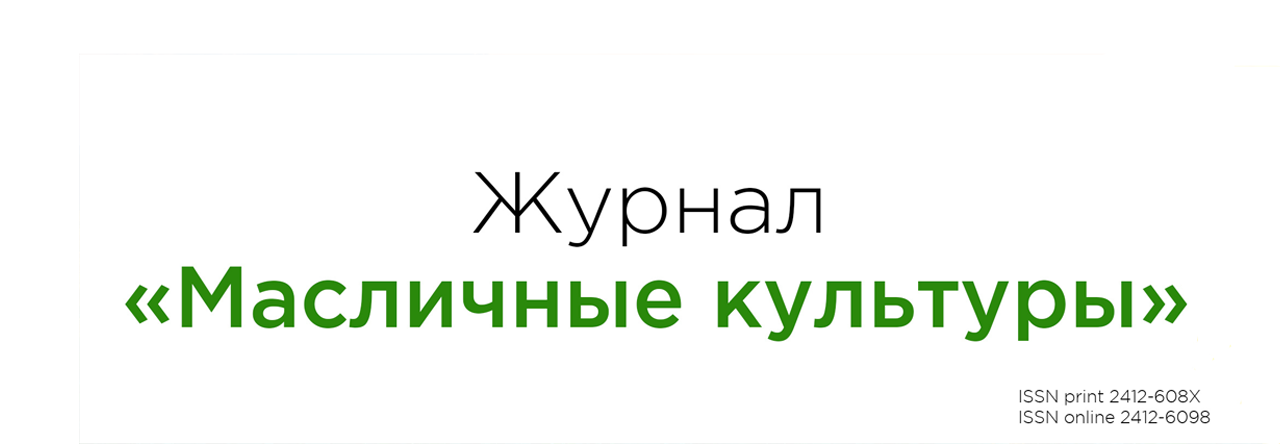Ethics of scientific publications
The editorial activity of the journal “Oil Crops. Scientific and technical bulletin of VNIIMK” is based on the recommendations of the Committee of Publication Ethics (COPE). The editorial board of the journal makes every effort to comply with the ethical standards accepted by the international scientific community. The editorial board tries to prevent any deviation from these standards and therefore recommends that all parties involved in the publication process (authors, editors of the journals, reviewers, publishers) should follow the next principles:
General obligation and responsibility of the editorial board:
– to be responsible for everything that it publishes and to accept this responsibility;
– to apply the editorial policy that encourage maximum transparency, as well as maximum completeness and accuracy of publication, and to resolve editorial conflicts of interest;
– to protect the authenticity of published materials by introducing changes and refutations (withdrawal of articles) when necessary, as well as do not neglect cases of alleged misconduct during research and publication of research results;
– to address misconduct when reviewing and editing;
– to inform independent reviewers and authors about all the requirements imposed on them;
– to make decisions on accepting or refusing to publish articles which should be based on their significance, distinction, clarity of presentation, accuracy of contained information and its proximity to the subject of the journal.
– to make decisions on accepting or refusing to publish articles, which should be based on their significance, originality, clarity of presentation, reliability, information contained in them and its proximity to the subject of the journal.
Ethical principles in a reviewer’s activity:
– to agree to review only those manuscripts for which they have sufficient knowledge and which they can review on time;
– to respect the confidentiality of the review and to not disclose any details of the manuscript or reviews during or after review to anyone except the persons authorized by the journal;
– do not use the information obtained during reviewing for own benefit or benefit of other persons or organizations, or for causing harm to other or for discrediting others;
– to state all possible conflicts of interest and seek advice in the journal if they are not sure whether the current situation constitutes a conflict of interest or not;
– to not allow the content of their review to be affected by the origin of the manuscript, nationality, religious affiliation, political or other views of its authors, or by the commercial considerations;
– to write a review objectively and constructively, refraining from hostile or inflammatory statements, as well as from slandering or humiliating comments;
– to understand that as researchers they themselves need the honest reviews of their colleagues, and therefore to perform review responsibly;
– to provide journals with accurate and reliable information about their personal and professional knowledge and experience.
Principles for the authors of scientific publications
– The authors of the article should provide reliable results of the conducted research. Knowingly erroneous or fabricated statements are unacceptable.
– The authors must ensure that the research results presented in the manuscript are completely original. Borrowed fragments or statements must be given with an obligatory indication of the author of the primary source. Excessive borrowings, as well as plagiarism in any form, including unexecuted quotes, rephrasing or assignment of rights to the results of other people’s research are unethical and unacceptable.
– It is necessary to recognize the contribution of all persons who influenced the course of research in one way or another; in particular, the article should contain references to the works that was important during research conduction.
– The authors should not submit to the journal a manuscript that was sent to another journal and is on review, as well as an article that have already been published in another journal.
– All persons who have made a significant contribution to the research should be named as co-authors of the article. It is unacceptable to indicate the persons who participated in the research as co-authors.
– If the author finds significant errors or inaccuracies in the article at the review stage or after its publication, he should notify the editorial office about this as soon as possible.
Principles of professional ethics in the publisher’s activity
– To respect the right to confidentiality and to the privacy of personal information (e.g., for research participants, authors, reviewers).
- To protect intellectual property and copyright.
– To promote the independence of editors.
– The publishers in cooperation with the editors of journals should form an efficient journal policy and mechanisms of its implementation.
– To spread information about the journal’s policy, bring it to the attention of all interested persons (authors, readers, reviewers).
– To occasionally review the journal’s policy; in particular, in connection with the appearance of new recommendations from the COPE.
– To remain true to the principles of scientific honesty.
– To publish edits, explanations and withdraw unprincipled articles.
– To ensure timely publication of the journal.

